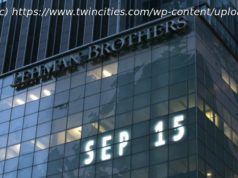The Federal Reserve is expected to raise its key interest rate again on Wednesday. Here’s what you need to know.
A Fed rate hike is expected at the end of its widely watched meeting Wednesday. It would be the Fed’s second rate hike since December and a sign that the central bank’s leaders are moving interest rates up at a faster pace this year.
«It’s really time to move,» says Dan North, chief economist at Euler Hermes, an insurance firm.
Here’s 4 things to know before the Fed’s announcement Wednesday at 2 p.m. ET.
1. A rate hike reflects a healthier economy
America is still adding jobs at a healthy clip, unemployment is low and wage growth continues to gain momentum. Those positive trends clear the way for the Fed to raise rates further.
The Fed put interest rates at 0% in 2008 to help the collapsed housing market recover during the Great Recession.
But America is no longer in crisis mode, and it can weather higher interest rates. The Fed raised rates once in 2015 and 2016, but this year its leaders project they’ll increase rates three times.
Still, rates are very low historically.
2. It’s all about the dots
Almost all investors are expecting a rate hike Wednesday. The real newsmaker for financial markets will be the Fed’s «dot plot. » It’s a chart that effectively shows how many times Fed leaders think they’ll raise rates this year and in upcoming years.
The last dot plot came out in December and a new one publishes Wednesday.
3. Yellen to push back on Trump’s plans
Fed Chair Janet Yellen holds a press conference Wednesday. While she’ll certainly discuss the economy and the Fed’s decision on interest rates, she will likely be asked President Trump’s plans to dismantle Dodd-Frank, the financial regulation reform the Fed enforces.
Dodd-Frank was created after the financial crisis to prevent risky behavior by Wall Street banks. But Trump sees it as a burdensome regulation and plans to repeal much of it.
Yellen has already pushed back against Trump’s plans to get rid of Dodd-Frank. Look for more staunch defense of Dodd-Frank on Wednesday.
4. The beginning of the end for the Yellen Fed?
By April, three key governor positions at the Fed will be open, Yellen’s term ends in January, and the Fed’s No. 2, Stanley Fischer’s, ends in June 2018.
All positions must be appointed by Trump, who was heavily critical of Yellen during the campaign. He will be able to quickly reshape the Fed’s leadership in the coming months. Many of Yellen’s colleagues have served with her since the Great Recession or soon after it ended in 2009.
Trump’s treasury secretary, Steven Mnuchin, has eased the administration’s tone on the Fed since taking office. Still, it’s unclear if Trump will reappoint Yellen for another term.






